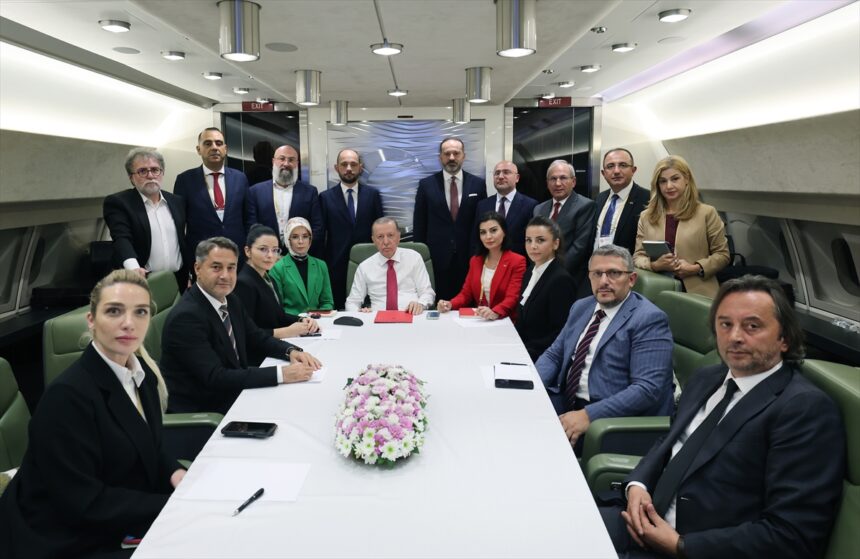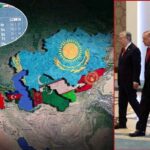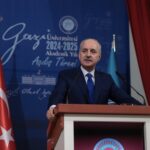Ankara – Turkish President Recep Tayyip Erdoğan has indicated the possibility of a new peace process aimed at resolving the enduring Kurdish issue, reflecting a change in political dynamics as the nation anticipates potential constitutional reforms. On October 12, Erdoğan made remarks while returning from Albania and Serbia, addressing recent overtures from his ally, Nationalist Movement Party (MHP) leader Devlet Bahçeli, regarding reconciliation with the pro-Kurdish Peoples’ Equality and Democracy (DEM) Party.
On October 1, Bahçeli, who had earlier advocated for the dissolution of the DEM Party due to purported connections with the outlawed Kurdistan Workers’ Party (PKK), engaged in a handshake with DEM deputies during the Parliament’s opening session. Bahçeli subsequently urged the party to “become a party of Turkey,” indicating a possible shift in his previously rigid position.
Erdoğan commended Bahçeli’s actions, describing them as “positive and meaningful” contributions to Turkey’s democratic struggle. He articulated optimism that this transition would facilitate enhanced social consensus, especially as the government advocates for a new constitution. It is anticipated that the number of individuals undertaking these actions will rise in the future. Erdoğan stated, “As the number of individuals taking these steps increases, we anticipate the expansion of the social consensus regarding the new constitution.”
Erdoğan highlighted the necessity of achieving peace in Turkey, especially in a region characterized by ongoing conflicts in Iraq and Syria, along with Israel’s recent military operations. Erdoğan stated, “We are always prepared to address issues through non-terrorist methods,” emphasizing his administration’s dedication to peaceful resolutions and national cohesion. He associated the necessity for a new, inclusive, and libertarian constitution with the larger peace movement.
The possible reconciliation with the DEM Party has generated speculation regarding Erdoğan’s political intentions, with certain critics positing that this strategy may be designed to garner support for constitutional amendments that could enable him to pursue an additional presidential term. The existing constitution of Turkey restricts the presidency to two five-year terms, a regulation that Erdoğan has previously sought to circumvent in earlier elections. His candidacy for the 2023 presidential election was controversial, given that he had already served two terms since 2014. Nonetheless, the AKP contends that Erdoğan’s initial term should be excluded from consideration, as the 2017 constitutional reforms transitioned Turkey from a parliamentary to a presidential system.
The potential for a new Kurdish peace process recalls Erdoğan’s previous initiatives to tackle the Kurdish issue. In 2009, the government initiated steps toward reconciliation, leading to a formal peace process with the PKK from 2013 to 2015. Nonetheless, that process disintegrated in 2015, resulting in a resurgence of violence in southeastern Turkey. The conflict, extending into 2016, resulted in significant civilian casualties and devastated multiple cities.
Erdoğan’s government faces challenges in constitutional reform and the Kurdish issue, rendering the potential for a new peace initiative both uncertain and significant. The outcome of this renewed dialogue in terms of achieving lasting peace or serving as a political strategy for future electoral gains remains uncertain.
By: NAT Editorial Team



